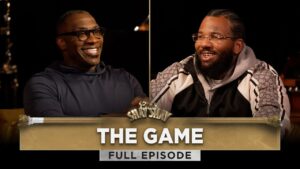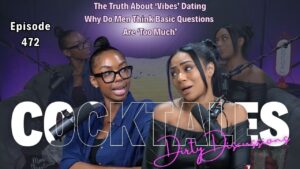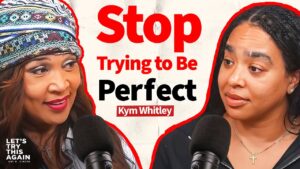In a candid conversation on All The Smoke, Miami legend Luther “Uncle Luke” Campbell reflects on his extensive influence on both the music and sports worlds. From his Supreme Court victory to shaping Southern hip-hop’s rise, Campbell opens up about how he built his empire far beyond the music scene, with insights into his groundbreaking work with the Miami Hurricanes football program, pioneering underground radio, and shaping the culture of Miami sports.
Luther Campbell’s legacy is anchored in his pivotal Supreme Court case, which secured the precedent for free speech in music, protecting explicit lyrics and content. His legal battles didn’t stop there—Campbell fought numerous lawsuits over sampling and content, all while navigating an involuntary bankruptcy that threatened his empire. However, he came out on top, eventually regaining control over his vast music catalog and signing a deal with Paramount for an upcoming biopic, ensuring his story would be told on his terms.
Uncle Luke’s impact on the music industry cannot be overstated. As the founder of 2 Live Crew, he was at the forefront of the Southern hip-hop movement, which faced resistance from the East Coast-dominated rap scene. Campbell founded the first Black-owned independent record label in the South, offering a platform for emerging talent like Trick Daddy, Pitbull, and Trina, and played a significant role in launching the careers of acts such as H-Town. Perhaps most notably, Luke collaborated with Bruce Springsteen on the 1990 anthem “Banned in the USA,” marking the first record to be downloaded in music history.
While Campbell revolutionized the genre in the 90s, he is equally enthusiastic about the current state of hip-hop. In particular, he supports the rising wave of female rappers, praising artists like Ice Spice and Sexyy Red for their boldness and unapologetic content. Campbell reflects on the irony that the very women who once criticized his work are now championing similar messages in today’s music. He credits Southern hip-hop with producing some of the best songwriters and most creative artists in the game, specifically highlighting the contributions of OutKast, Geto Boys, and Rick Ross.
Beyond music, Campbell’s influence extends deep into the fabric of Miami culture, particularly the University of Miami football program. He played a pivotal role in bridging the gap between the university and the local community, helping transform a struggling program into a dominant force. His connection to the team was more than just business; it was personal. Campbell mentored young athletes, emphasizing education, career opportunities, and the importance of refining their image and strategies for success. He instilled a sense of defiance and unity in players like Jerome Brown and Warren Sapp, shaping their “bad guy” persona that resonated both on and off the field.
Campbell also reflected on his time with the Miami Heat during the team’s early years. As a deeply involved figure in the franchise’s expansion, he recounted his unique relationship with players like Dwyane Wade. He reminisced about the initiation process, including a tradition of players taking shots at their first draft—part of the team’s evolving culture. The stories he shared offered fans a rare look at the Heat’s formative days, solidifying Campbell’s role as a significant figure in Miami’s sports scene.
In one of the most poignant moments of the conversation, Campbell shared his personal relationship with the late Tupac Shakur. The two shared countless conversations about social movements, personal struggles, and their shared experiences growing up. Campbell described Tupac as not just an artist, but as a deep thinker who always emphasized social justice and the importance of activism—a reflection of the bold, unapologetic persona that Campbell himself cultivated.
Luther Campbell’s conversation on All The Smoke is a no-holds-barred dive into the life of a man who has not only shaped the course of music and sports but has also been a pioneer in the fight for creative freedom.






